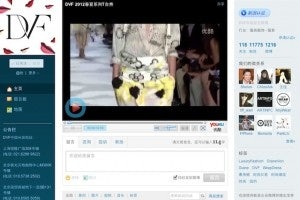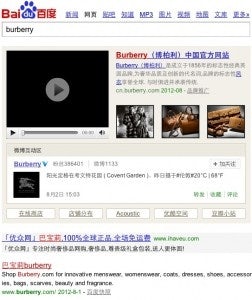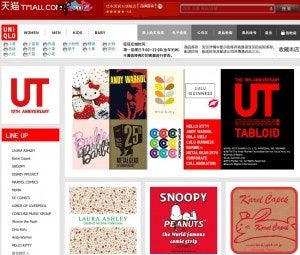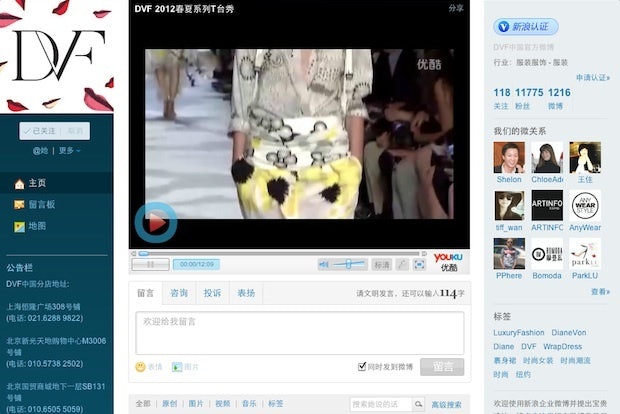A How-To Guide For Getting The Most E-Commerce Bang For Your Buck In China#

"Why are social media and online chatter more important in China then anywhere else in the world?"
I was recently intrigued by this question and asked around. The answer seemed to be:
trust#
. In a country where brands have been known to place income over ethics (think the melamine milk scandal), shoppers rely on peers -- not brands -- for honest product feedback. An endorsement from a fellow shopper can be the difference between buying Rick Owens or Dolce & Gabbana.
If your brand isn’t online and actively encouraging conversation, then, in the immortal words of Donnie Brasco, "Forget about it!"
China's top 10 largest cities make up six percent of the country's population, but have close to 100 percent of the luxury stores. This means the 1.2 billion “other” shoppers either travel to those cities or, you guessed it….shop online! Social media and e-commerce are so powerful in China that I’ll go so far as to say that new brands entering the market only need an Internet strategy to make a dent in the proverbial “red wallet."
So what can new brands do?#
After polling several experts, including China-entry strategist Renee Hartmann of China Luxury Advisors, I compiled my version of an online-entry “cheat-sheet":

1.) Do a brand search on Baidu#
(China’s Google): Even if you’re not in China, you’ll be amazed at the amount of information out there about your brand. Find out what people already know and what they're saying.
2.) Set up a Sina Weibo account#
(China’s Twitter): Talk about what’s going on with your brand at home, not just in China, so customers can experience your brand's personality. Make sure to offer incentives to shoppers visiting from China. (A solution to stagnant retail sales at home?)
3.) Sell with high-end e-tailers like OMEI.com or Glamour Sales#
: Macy’s and Neiman Marcus recently invested $15 million and $28 million respectively in these sites. Clearly they also like the idea of entering the market online-first. Brands see this as a lower-risk way to test product, price and positioning in the cut-throat China market.
4.) Set up a Tmall “store”#
: Yes, many Western brands criticize the site for being overcrowded, but it works. Last year, more than 450 million Chinese customers shopped online, with 370 million of them using Taobao.com. Don’t try to change the buying habits of the Chinese. Examples of well-known brands launching offical stores on Tmall include SK-II, Chow Tai Fook, L'Oreal, Uniqlo and Coach -- which launched a trial store to test the waters late last year. (If you don’t want to manage a Tmall store yourself, work with a company like US-based ExportNow.com that will do it for you.)
5.) Build your own site#
: As Renee Hartmann points out, your own website is where customers can experience your brand’s unique personality -- even if they prefer to purchase elsewhere. Also, list the addresses of your overseas stores, so potential Chinese customers know where to find you when they travel.

6.) Get socializing#
: Of course, none of this matters if you’re not out there socializing. Hong Huang (often called "China’s Oprah") cited DVF as the best social media brand in China. Check out what leaders in the field do successfully, and take notes.
So what does this all mean? For a relatively small cash investment, you’re compiling endless amounts of useful data – where your customers are and what they like. Isn’t that the goal of any entry strategy? Once you have a sense of this data, then you can think about retail.
If you only do one thing in China, make sure you get online or else…forget about it!
---------------
Disclosure: I have done consulting work with OMEI.com
Sonya Madden has lived in Hong Kong since 1994, first as a Banker then as a Fashion Designer/ Entrepreneur. She’s featured in the best-selling book “Ladies who Launch in Hong Kong – How 12 Women Started Million Dollar Businesses.” She consults to Western and Chinese fashion companies in China. Follow her on Twitter at @SonyaMadden1.
(Opinions expressed by columnists do not necessarily reflect the views of the Jing Daily editorial team.)
